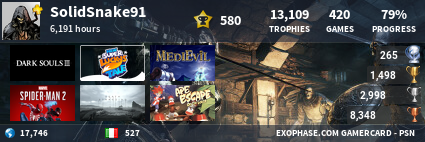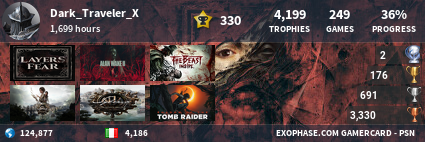Last week we did a postmortem on The Chinese Room's experimental horror sequel Amnesia: A Machine for Pigs, and as fascinating as it was to hear all the decisions that went into developing that, I couldn't help wonder about the Brighton-based studio's upcoming PS4-exclusive first-person exploration game, Everybody's Gone to the Rapture.
The evocative title aims to explore rural Shropshire an hour before the end of the world. When studio head Dan Pinchbeck discussed Rapture last summer, it was said to feature a Majora's Mask-esque time mechanic that would constrain each playthrough to about an hour. When asked about this now, Pinchbeck laughs, "Yeah, that's gone."
"Originally, when we started the game off it was going to be an hour long for each playthrough. It would be almost like kind of a Groundhog Day or 12:01-type thing where you've got an hour. How far can you get? How much can you explore? Imagine reading a novel and you're really into it, and 30 pages before the end someone comes up and takes it out of your hand and goes, 'I'm afraid that's it. Your time's up.' It's an artificial conceit that doesn't necessarily produce a good player experience." Time limits, Pinchbeck notes, are "probably more suited to an arcade-style game, but not really good for a non-linear story-driven drama."
Pinchbeck notes that Rapture will still be non-linear and set during the final moments before the apocalypse. "Time still plays a fairly central role in the game - it's just the time-locked stuff is gone," he clarifies, though he hasn't sorted exactly how this will be handled. "One of the things we really, really wanted to explore with Rapture was the uniqueness of storytelling in games. So there are things you can do in terms of how the narrative is structured and how the player relates to the structure of that narrative and how time relates to all of that, that you can't do in another medium. That's something that's pure games. We really wanted to explore: what is it we can do with this that no other medium would be able to touch? How do we make this a real 'game drama' rather than a drama that just happens to be a on a game machine?"
Unlike The Chinese Room's earlier effort, Dear Esther, Rapture will have more player agency and even characters to interact with. "We're really interested in the idea of the player having something that is a deep, strong drama, but having something where the player can still feel a deep sense of ownership over their story and over their journey through this space and it really feels like what they're doing has a significant meaning in the world."
When asked if players will be able to do everything in one playthrough, Pinchbeck says that he hasn't figured that out yet. "Whether we want the player to be able to likely hit 100 per cent of everything there is or if we want to do like 60-70 per cent, is still a little bit in flux as we're putting stuff in.
"What I would say is that I'm not really hung up on the notion of replay value in games, because I generally have no problem with going back and playing the same thing over and over again if I love it, the way I'd revisit the same book or the same film because you see new things on multiple playthroughs. I don't think things need to be different. That's just my personal tastes.
"In terms of the kinds of scale of development we work at and the types of game we make, I think that replay value is a very, very hard thing to achieve in a satisfying way, so we don't really worry about that."
Pinchbeck notes that as much as he enjoys games that are rich enough to warrant multiple playthroughs, he isn't necessarily keen on being forced to replay a game to gather all of its content. "I like the idea that a player can go back to a game and discover new things, but that's not always the case if they're stopped from experiencing everything the game has to offer. It should be that the game is rich enough and interesting enough that you can understand it in a different way when you return to it, and certainly that has been our experience with Esther, and Pigs as well. So it's more about kind of going, 'We want to tell a really good story, where we want the player to have a really engaging story-driven experience.' That's the target and the rest of the game will sort of mould and shape right up to the wire to try to make sure that's happening."

 Dannato caldo //content.invisioncic.com/a283374/emoticons/emoticons_dent1005.gif
Dannato caldo //content.invisioncic.com/a283374/emoticons/emoticons_dent1005.gif






